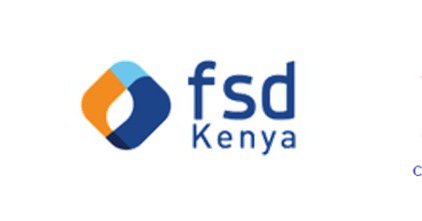
FSD Kenya
@FSDKe
Followers
8K
Following
5K
Media
6K
Statuses
12K
An independent trust dedicated to the achievement of a financial system that delivers value for a green and inclusive digital economy
Nairobi, Kenya
Joined November 2011
The recently concluded WE Finance Code Kenya Chapter webinar led by the @Argidius Foundation and FSD Kenya highlighted the powerful role the Code can play in driving inclusive finance for women-led micro, small, and medium enterprises (WMSMEs). By joining the WE Finance Code,
0
0
0
Seeing women in the data is an opportunity to create more inclusive financial solutions for women-led MSMEs. FSD Kenya, in collaboration with @SASRA_ke , is supporting the upcoming 2025 SACCO Demographic Survey, an important opportunity to collect sex-disaggregated supply-side
0
0
0
The development of green building guidelines for the Kenya Affordable Housing Programme (AHP), funded by @AFD_France , sought to leverage an anticipated major public investment in the construction of hundreds of thousands of housing units to precipitate a green shift in the
0
0
3
With 61.4% of Kenya’s population residing in rural areas, promoting climate-friendly home improvement solutions in rural areas is critical to the country’s inclusive and sustainable development. FSD Kenya, in partnership with @KRepFedha (KFS), launched the “Boresha Boma” pilot
0
0
0
RT @KNBStats: How does #Kenya use data on remittances? Click on this link to learn about the 2025 Remittances Household Survey https://t.c….
knbs.or.ke
2025 Remittances Household Survey (2025 RHS)
0
4
0
RT @AkibaMTrust: Under our Water & Sanitation Project, we held a community engagement forum in Gatoto Zone, Mukuru kwa Reuben. With @Nairob….
0
3
0
RT @KenyaBankers: In partnership with FSD Kenya, we're using gender-disaggregated CRB data to boost visibility of women-led MSMEs and drive….
0
2
0
RT @ClimateEnvoyKe: This week, I joined our Carbon Markets Team in a strategic meeting with @FSDKe’s CEO Tamara Cook and senior green finan….
0
1
0



















